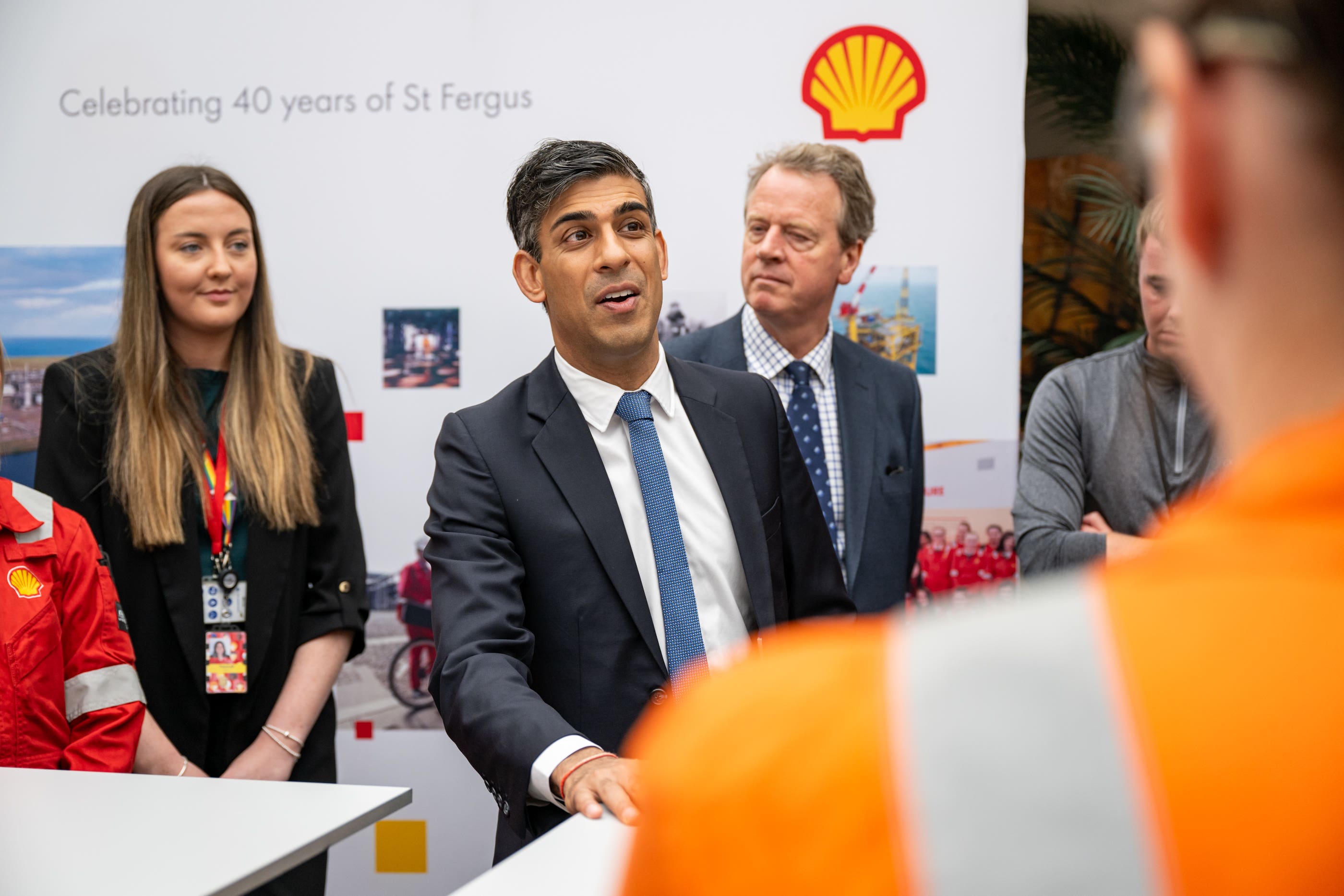In a climate crisis, this government has just made polluting more worthwhile
Reducing carbon in an effective and economical way is one of the great challenges we face, writes Chris Blackhurst. So why have the Tories just made industrial pollution more affordable?


The Conservative government is totally committed to green energy policies. Hang on, it’s not. To say that confusion now reigns regarding where Britain stands in relation to the pursuit of its climate agenda is an understatement.
We’ve just witnessed the hottest July on record, a heatwave in the Mediterranean accompanied by rampaging forest fires, and intense rainfall and horrendous flooding in Beijing. They’re all being blamed on climate change. What does Rishi Sunak go and do? Only grant 100 new oil and gas exploration licences in the North Sea.
He accompanied that announcement with a boost for carbon capture. So his approach looked neutral. Except that climate change is not about balance – if he was genuinely serious about ending reliance on fossil fuels, he would not have created the 100 new sites.
Surely it can’t be a coincidence that the move in favour of dirty oil and gas came so soon after a July that also saw the delivery of an unexpected Tory victory in the Uxbridge by-election. Sunak will of course deny the connection. Undoubtedly, though, opposition to the Labour London mayor’s anti-car policies was responsible for the unlikely triumph. There’s a general election looming next year. Uxbridge set the minds of Sunak’s election strategists racing.
The by-election result was galvanising, but ministers have been quietly chipping away at the climate arsenal for some time.
Take carbon offsetting, a central weapon in the effort to reduce emissions. Another is carbon capture.
The latter involves storing emissions underground, preventing them from reaching the atmosphere. The former encourages households and businesses to match or offset the emissions they produce by investing in “clean” energy technology and other carbon-reducing projects. For a while, buying trees to plant in forests was all the rage, but other, more sophisticated and effective assets have become more popular.
In 2021, after the UK left the EU, we introduced an emissions trading scheme (ETS) to incentivise heavy industry to cut emissions. The worst offenders were required to buy a credit to be used in renewables, or some such, every time they emitted a tonne of carbon dioxide (CO2).
However, to mitigate the cost, the largest emitters – among them the electricity generators – received an allowance to ease their pain. The subsidies were capped and cut over time, encouraging them to reduce their emissions rather than pay a hefty sum.
Now, though, the cap has been weakened, so they can receive more allowances. In effect, industrial pollution has just got a whole lot cheaper.
Among eco-campaigners, the little-trumpeted trading scheme was a flagship policy. It was one that was clever and, if pursued as intended, would have made a genuine difference by influencing industrial companies to bring down their emissions. The EU has its own equivalent.
High-emitting businesses were required to buy carbon credits. The idea was that, as they brought down their emissions, they would buy fewer credits. That motivation, to decrease emissions and save money, has gone.
The UK ETS is trading at a 40 per cent discount to its EU counterpart. The UK price is £47 per tonne of emission versus the EU’s €88.50 (£75.86).
For a couple of years, they were at near parity. Then, a few months ago, they started to pull apart, as market participants found themselves unconvinced by the UK government’s commitment to meeting climate targets.
The higher the price, the more attractive it is to invest in renewable energy and other clean projects. The whole rationale of offsetting is to encourage investment in projects that lower carbon emissions. At a stroke, the government has diminished that incentive and deflated what was a buoyant carbon market.
It’s bizarre, unless you’re a political party anxious to please industry and respond to complaints about paying too much for every tonne of CO2 emitted. They’ve got their wish, and the bill has come down. Power stations can burn more gas in the knowledge that they don’t need to pay so much for the pollution they are creating. Wind-farm developers, by contrast, have seen their investment appeal and likely returns slashed.
Mandatory carbon-trading programmes for big industrial companies should not be confused with the unregulated voluntary carbon market, which sees individuals and businesses privately fund carbon-reduction projects. These projects have been in the spotlight recently, amid claims that they don’t do what they say they do. Attempts are being made to bring this market into line and to make it more efficient.
Solving the climate crisis is not cheap, and someone (everyone) has got to pay for it – either now, or at a greatly inflated cost further down the line, when the tipping point has been well and truly breached.
Reducing the planet’s carbon levels in an effective and economical way is one of the great challenges we face. Offsetting affords a solution. As Rasih Ozturkmen, managing partner of carbon asset manager Carbonaires, says: “The numbers are clear. We cannot meet or even get close to the carbon levels needed without complementary approaches like high-integrity and high-quality offsets. We need to apply science, ethics, technology and finance to solve the problems that exist in the current market. We need to supplement the world’s reduction in energy consumption and emissions with projects that lower carbon and bring additional social, environmental and economic value. It’s clear that, for most companies, a responsible, transparent and fair approach to offsetting can help achieve this goal.”
That’s the aim. The reality – sadly and incredibly – is that this government has gone and made polluting more worthwhile.






Join our commenting forum
Join thought-provoking conversations, follow other Independent readers and see their replies
Comments